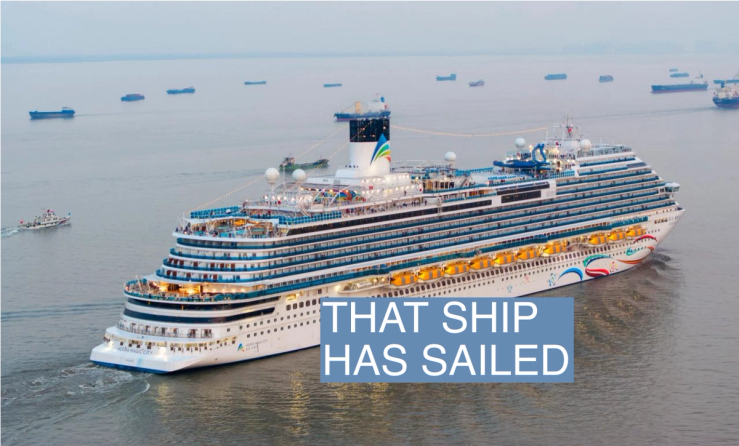The News
China’s first domestically built cruise ship set sail for a weeklong voyage to South Korea and Japan this week, a debut hailed by state media as a major accomplishment for the country’s industrial sector.
The launch of the 135,000-ton Adora Magic City kicks off a year that could see a rebound in the global cruise industry after years of pandemic-induced slumps. Over a dozen new ships are expected to launch, and more eyes are on the industry as a nine-month Royal Caribbean cruise went viral on TikTok.
SIGNALS
Chinese cruise market is expanding, but still reliant on European tech
One tourism expert said China’s new ship is “tangible evidence” of the country’s technological advancement and increasingly robust travel market. The cruise ship-building industry is largely dominated by Europe, and the Adora Magic City is “heavily reliant on foreign technology,” Quartz reported. Only 30% of contractors tied to the project were Chinese companies paid in renminbi. A business consultant told The Financial Times that it will take at least a decade for Chinese cruise operators to match their Western counterparts.
Global cruise ship market hoping for a banner 2024
The cruise industry is looking forward to a major expansion this year, with 14 new ships expected to enter service. Royal Caribbean, which is expecting an uptick in demand and earnings in 2024, is also debuting a vessel that will become the world’s largest cruise ship. And a cruise line owned by Saudi Arabia’s sovereign wealth fund is unveiling its first ship this year. The Middle East — especially Abu Dhabi and Oman’s Muscat — is becoming a more popular cruise destination, and the Arabian travel industry hopes that will lead to more passengers getting off their ships and taking land tours.
TikTok obsesses over nine-month cruise
The cruise industry is also having a moment on TikTok, as users follow along for updates from Royal Caribbean’s nine-month “Ultimate World Cruise,” which kicked off in December with plans to take passengers to more than 60 countries. It put a spotlight on the surreal nature of cruise culture, while making for a reality show-like experience on TikTok, with certain passengers going viral for their daily updates from the ship, essentially becoming “characters” for those watching from home. “There’s definitely this fascination that’s baked into TikTok … of ‘I could never live this life, so I’m now going to live vicariously through these people,’” a digital media professor told NBC News.



